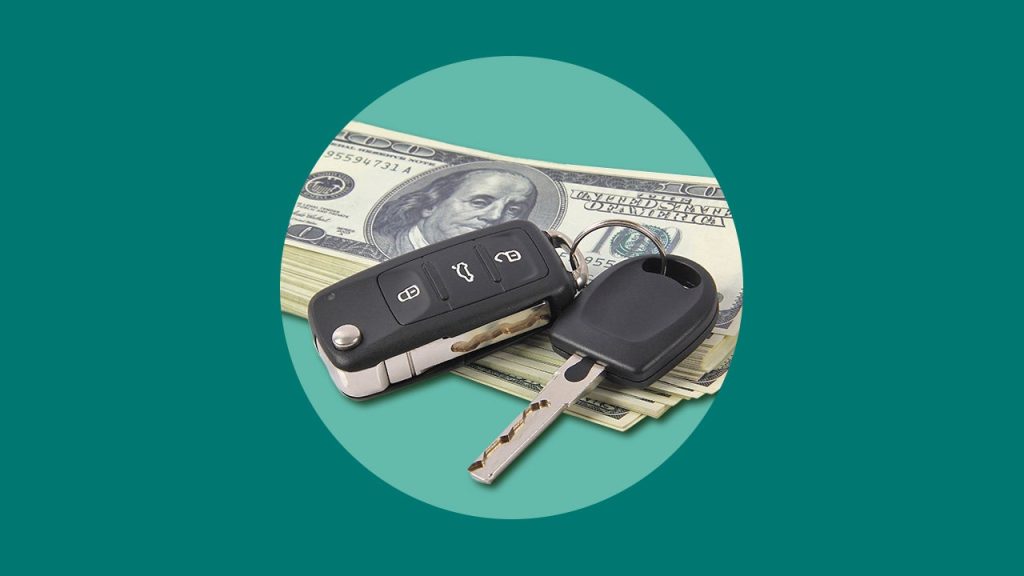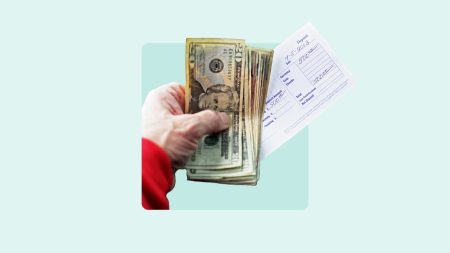Key takeaways
- An auto loan can make car ownership possible by spreading out the purchase cost over years. It can help you afford a more reliable vehicle and increase your credit score.
- Auto loans also have their drawbacks, including high monthly payments, financial risk, vehicle depreciation and being stuck with an unsuitable vehicle until payoff.
- You can also consider car loan alternatives, like leasing, using savings, tapping into your 401(k) or taking out a personal loan, although these options are not without risk.
An auto loan can help you minimize the upfront expenses associated with buying a car by allowing you to spread the cost over several years of installment payments. However, there are some pros and cons of financing a car to consider, including the impact of monthly car payments on your budget for years to come.
While interest rates have been declining slowly since January 2025, they are still unusually high. The average new car price is already $48,907 as of June 2025, according to data from KBB. A high interest rate can add thousands of dollars to that price over the life of your loan. It begs the question: Should you finance a car? To answer that question, consider the total cost of different purchase options and determine which is most cost-effective for you.
Pros and cons of financing a car: Overview
Car loans make it possible to purchase a car when you don’t have the entire purchase amount available in cash. Managing your auto loan responsibly could benefit your finances and credit score — but falling behind could damage your credit and finances. Consider your financial situation, including your income and other debts, to determine whether you’re in a position to handle the risks of a car loan.
Pros
- Spreads the expense over years
- May help you afford a more reliable or safer car
- Can help improve your credit score
- Allows you to focus on other financial goals
Cons
- Monthly payments might be expensive
- Risk of damage to finances
- The vehicle’s value depreciates while you’re still paying
- You’ll be stuck with the same car for longer
Benefits of taking out an auto loan
Though there are some drawbacks, securing an auto loan also comes with perks. You’ll spread out the expense, financing may enable you to buy a better car and on-time repayment could boost your credit.
Spread out the expense
Few drivers can purchase a car with cash. An auto loan reduces the amount you spend upfront, replacing a big one-time expense with a smaller, ongoing one. It also leaves you with money in the bank to use for other purposes. Draining your savings to buy a car leaves you without an emergency fund, which could come back to bite you in the future.

The best auto loans of 2025
If financing your vehicle is the best fit, consider Bankrate’s picks for the best auto loan lenders.
Learn more
Afford a more reliable car
It’s possible to find an older, used vehicle that you can afford to pay for in cash, but a well-worn car is more likely to have higher maintenance costs and reliability issues. An auto loan could help you afford a newer vehicle in better shape — or even a higher-end option. Review your finances and calculate how much car you can afford before borrowing, so you don’t take out a bigger loan than you can handle.
Bankrate’s take:
While you can get behind the wheel of a nicer car, beware of overspending. Experts recommend spending no more than 20 percent of your take-home pay on all car-related expenses, including your loan, insurance, gas and maintenance.
Improve your credit score
Your payment history makes up 35 percent of your FICO Score. If you can keep up with your auto loan payment each month, your credit score should increase over the loan’s term. Your credit mix — the different types of credit you have — also plays a small role in your credit score. Adding an auto loan can diversify your credit mix and slightly boost your score.
But remember: Missed payments can damage your score.
Maintains savings balances
Paying cash for a car can deplete your savings, but taking out an affordable car loan allows you to leave your money in savings or investment accounts, where it can earn interest. You can also maintain progress on other financial goals, like paying off credit cards or saving for a vacation while paying for your car.
I bought a new car in February 2025, and although I could afford to buy it with cash, I opted instead to make a sizable down payment and borrow an auto loan for the remainder. Maintaining easy access to cash for emergencies was important to me — I didn’t want to drain my savings and expose myself to risk on a future rainy day.
— Katie Lowery
Bankrate Loans editor
Drawbacks of taking out an auto loan
Getting an auto loan is one of the most effective ways to afford a car, but it has downsides. High monthly payments, potential damage to your credit and increased financial risk are all possible when you borrow money.
Monthly payments can be expensive
Even if you finance a vehicle that fits your budget, your monthly payment can be steep. The average monthly car payment for new vehicles was $745 in the first quarter of 2025, according to Experian.
And this high cost doesn’t account for insurance, which averages $2,677 annually, according to Bankrate data.
Risk of damaging your finances
Falling behind on your auto loan payments will lead to trouble. Even one missed payment will affect your credit score, and multiple missed payments can lead to your vehicle being repossessed.
This is because, for most auto loans, your vehicle serves as collateral for the loan. Until you’ve paid off the loan in full, the lender still owns the vehicle — and if you don’t make the payments, the lender will repossess it to recoup its losses. But even if you choose an unsecured auto loan, you could be taken to court for missed payments.
Your vehicle’s value depreciates
Your vehicle’s value will depreciate the moment you drive off the lot. Cars can lose as much as 20 percent of their value in the first year alone, and there will likely be a steady decline in value over time.
If you have a high interest rate, you could owe more than your car is worth and end up upside-down on your loan. This means that you can’t sell the car unless you have enough savings to make up the difference. It could also cause problems if you get into an accident and total the car. If you don’t have a policy that pays off the full amount of your loan (like gap insurance), your insurance payment likely won’t be enough to replace your vehicle.
Stuck with the same car for longer
When you borrow an auto loan to buy a car, you’re typically on the hook for keeping the car until the loan is paid off. Sure, you can trade it in or sell a car with a loan, but it can be complicated. These days, long loans are the norm, with the average auto loan for a new car lasting 68.63 months, according to Experian.
If you think you’ll want a different car in a year or two, consider whether car leasing is a better option for you.
Should you finance a car or pay cash?
Financing a car can be a good move if you don’t have the cash to cover the cost of a vehicle or if you want to use your savings for other financial goals. However, the trade-off is that you’ll pay more in interest and be locked into a loan for an extended amount of time.
To compare the pros and cons of auto loans, answer some questions about your finances and your needs for the vehicle.
- What can I afford? Unless you can afford to buy your dream car with cash, an auto loan is the most effective way to get a vehicle. Use an auto loan calculator to estimate your expected monthly cost and ensure you can afford it.
- Do I need to build my credit? Your eligibility and important details of your loan depend on your credit score. If you have excellent credit, you may qualify for a low rate and large amount — but with bad credit, you may struggle to qualify at all. Before applying, check your credit score to see where you stand, and take steps to improve your credit if necessary. If your credit needs a lot of work but you need a car now, paying cash may be best.
- How long do I want this vehicle? Auto loans commonly last between 36 and 84 months, and at the end of your loan term, the vehicle is yours. If you intend to swap cars frequently, leasing may be a better option.
What are the advantages of buying a car with cash?
Buying your car outright can be a great financial decision as long as you don’t deplete your savings or leave yourself financially vulnerable. Some of the benefits include:
- Saving money: You won’t pay interest charges, and you could avoid some fees as well. If you work with a dealership, you may qualify for a cash discount.
- Avoiding monthly payments: You won’t have to keep up with an extra expense each month.
- Negotiating more effectively: Paying cash puts you in a strong position to negotiate with a dealership or private seller, and it could speed up the sales process.
- Owning your car outright: While your car’s value will still depreciate, there’s no risk of being upside down, and you can sell your vehicle at any time.
- Sticking to your budget: You’re less likely to overspend when you only have so much cash available.
Despite the benefits of buying a car with cash, you should carefully consider the consequences of depleting your savings. Unlike other assets you could invest in, you won’t be able to sell your vehicle for as much as you paid. This could leave you unprepared if you face a financial crisis.
Alternatives to auto loans
An auto loan is not your only option. There are alternative financing options that may be a better fit for your budget.
- Personal loan: You can use an unsecured personal loan to buy a car, though you may face higher interest rates. The upside is that you won’t have a lien on your vehicle, so you won’t risk having your car repossessed if you’re unable to make payments.
- Leasing: Many consider leasing versus buying when looking into newer vehicles. While leasing can put you behind the wheel at a lower monthly cost, you won’t own your vehicle at the end of the lease term unless you choose to buy out your lease.
Explore more auto loan content on Bankrate
Bottom line
Deciding whether an auto loan is right for you depends on your financial situation and how long you want the vehicle. Crunch the numbers to determine how much you’ll pay over the life of an auto loan to determine whether paying cash is the smarter choice. Then decide whether you’ll have enough in savings to cover emergencies if you buy your car with cash.
If you find that vehicle financing is the best approach, take the time to research auto loan offers from several different lenders. Do your homework by learning how to get the best auto loan rate.
Why we ask for feedback
Your feedback helps us improve our content and services. It takes less than a minute to
complete.
Your responses are anonymous and will only be used for improving our website.
Help us improve our content
Read the full article here












